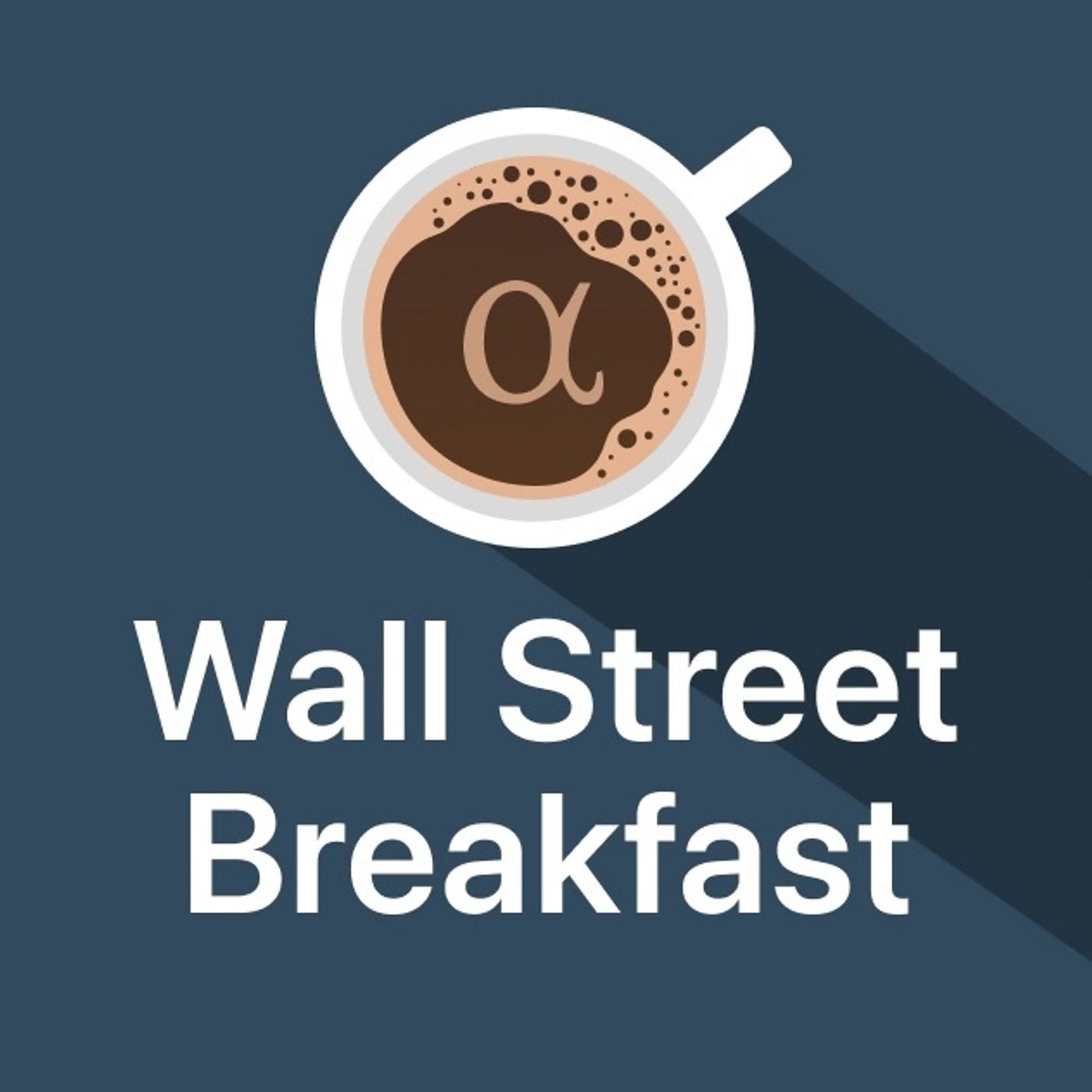
Powell signals higher prices as Fed holds

Wall Street Breakfast
Deep Dive
Shownotes Transcript
Welcome to Seeking Alpha's Wall Street Breakfast, where we cover the top news for investors every morning. Good morning. Today is Thursday, June 19th, and I'm your host, Kim Kahn, with a special Fed edition of Wall Street Breakfast on this Juneteenth market holiday.
Federal Reserve Chairman Jay Powell says the impact of tariffs is coming as the FOMC continued its wait-and-see path on rates. As universally expected, on Wednesday the Fed kept rates at 4.25% to 4.5%, while the new dot plot leaned further to stagflation. UBS Chief Economist Paul Donovan says, "...the uncertainty about trade taxes, fiscal policy, and the reactions of U.S. companies and consumers means, as Fed Chair Powell noted, there can be very little certainty about the future path of interest rates."
At his press conference, Powell did reaffirm that the next move is probably lower, saying it's more likely than not that the economy gets to a place where easing is appropriate. But he also highlighted the FOMC's worries on the inflation side of the mandate and the impact of tariffs on prices. All through the supply chain, people will be trying not to be the ones who pick up the cost, but ultimately the cost of the tariff has to be paid, he said, and some of it will fall on the end consumer.
We know that because that's what businesses say. That's what the data say from the past. So we know that's coming. And we just want to see a little bit of that before we make judgments prematurely.
We have to be forward-looking, and the thing that every forecaster, every outside forecaster, and the Fed is saying is that we expect a meaningful amount of inflation to arrive in the coming months, and we have to take that into account, he said. I think if you look at what's happening here since March, you see little slower growth, a one-tenth pickup in unemployment, and you see inflation moving up three-tenths, Powell noted. So that's what you see. You see the effects of tariffs.
For the Fed as a whole, the new summary of economic projections still shows two 25 basis point rate cuts for the year, to a median rate of 3.9%, unchanged from the March projections. The 2025 median projection for inflation-adjusted GDP fell further to 1.4% from 1.7% in the March SEP.
On the labor market, the Fed now sees a 4.5% unemployment rate for this year, up from 4.4% in the earlier estimate. TS Lombard economist Stephen Blitz says,
A wide range of views do create this policy median: 7 votes for no cuts, 2 votes for 25 basis points, 8 votes for 50, and 2 votes for 75.
Powell gave the committee cover on their projections during his presser by making it clear that these forecasts mean little given the uncertainty of the impact of tariffs, Blitz said. Then again, he also noted that while risks to the outlook are high, uncertainty about the economic outlook has diminished but remains elevated. I gather the FOMC is now pretty certain the risks are high, but is far from unanimous on what's next.
In the near term, Pepperstone strategist Michael Brown says, it seems likely that the June FOMC meeting will again go down as a placeholder one, with Powell and company continuing to resolutely stick with a wait-and-see approach to policymaking, particularly as the full economic impact of tariffs remains to be felt.
Following the decision and Q&A, Fed Funds Futures priced in slightly higher odds for no move in July, a quarter point cut in September, and another one by the end of the year. In trading, stocks rallied into the decision but sold off into the close, with the major averages finishing little changed. The benchmark S&P 500 closed flat, the blue-chip Dow settled down 0.1%, and the Nasdaq Composite finished up 0.1%.
Treasury yields took the opposite path, rising as Powell spoke. The 10-year yield moved back up to 4.4%. Now let's look at what's trending on Seeking Alpha with Wall Street closed for the market holiday. U.S. officials are preparing for a possible strike on Iran in the coming days, according to several reports.
Tesla's being urged to delay its robo-taxi launch by Texas lawmakers, a report says the LA Lakers will be sold at a record $10 billion valuation, and US investigators are urging action on Boeing 737 MAX jets due to engine risk.
That's all for today's Wall Street Breakfast. Look for links for stories in the show notes section. Don't forget, these episodes will be up with transcriptions at SeekingAlpha.com. And for a full suite of news, analysis, ratings, and data on stocks and ETFs, go to SeekingAlpha.com.